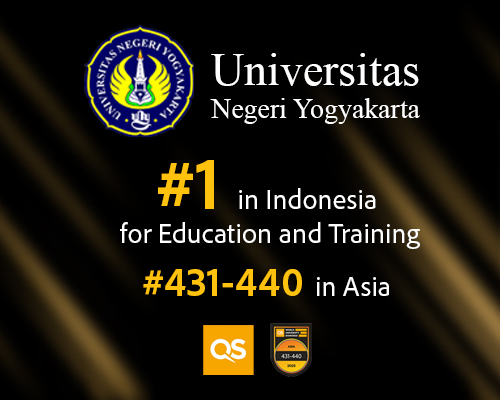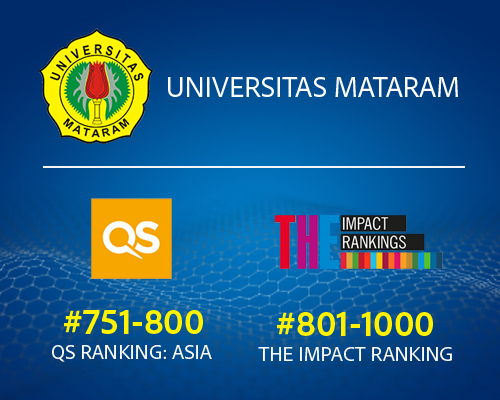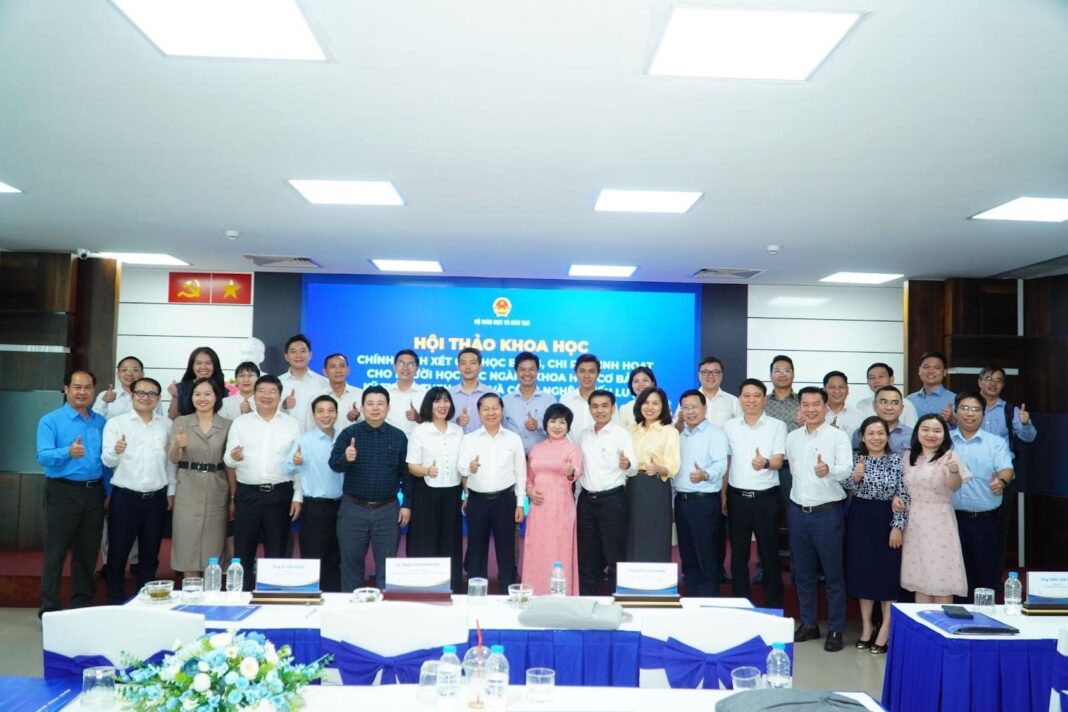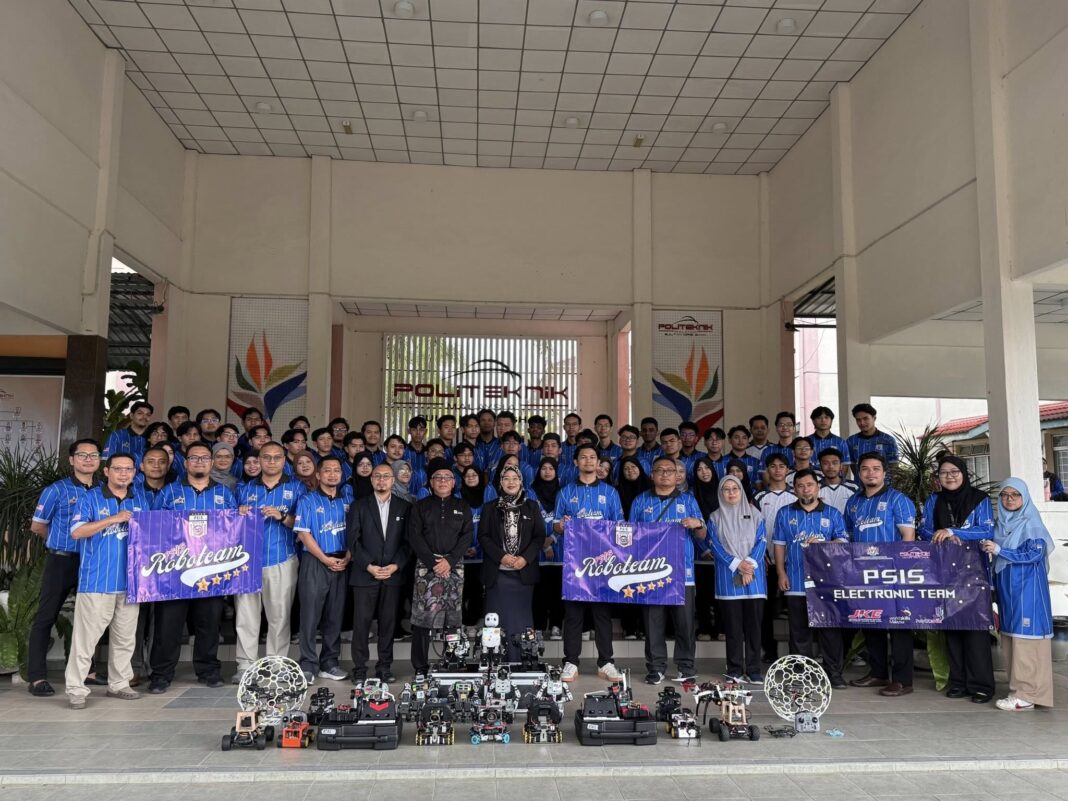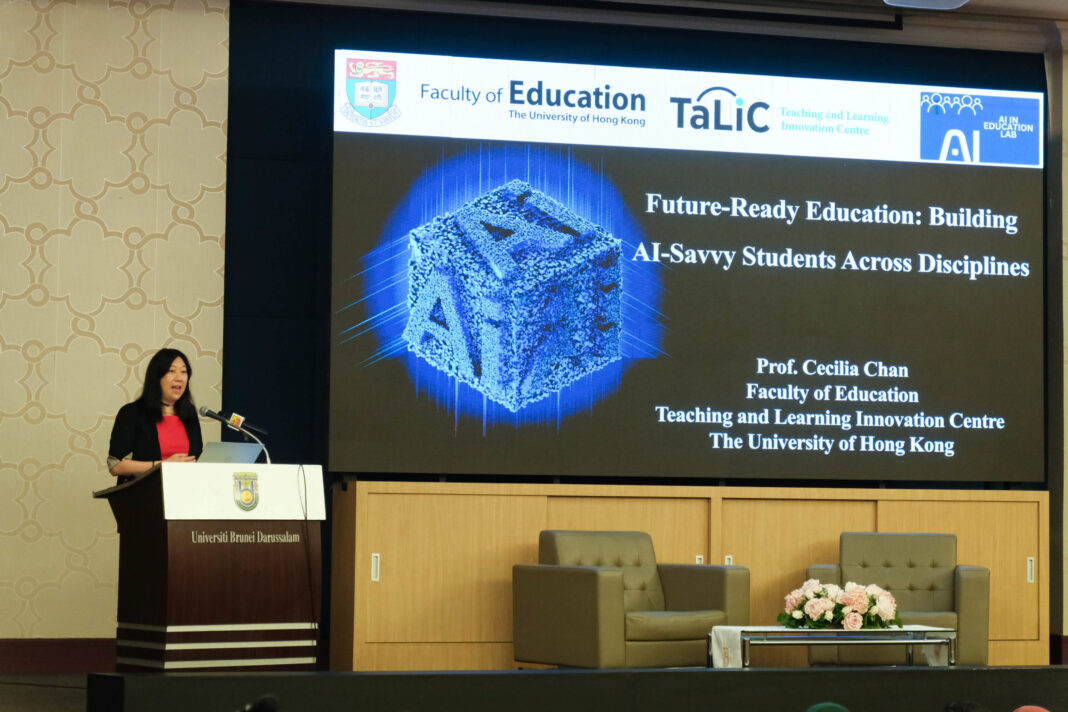Vietnam’s pursuit of technological advancement and scientific excellence faces a critical bottleneck: attracting and retaining talented students in fundamental disciplines that drive innovation. On June 20, 2025, leaders from the Ministry of Education and Training (MOET) and Ho Chi Minh City University of Technology and Education gathered to address this challenge through a groundbreaking conference on scholarship and living expense policies for students in core science, engineering, and strategic technology fields.
HCMUTE Partners with MOET on Revolutionary Scholarship Policies for Core Science and Engineering Students
The scientific conference brought together Vietnam’s educational leadership to tackle one of the country’s most pressing workforce development challenges. Moreover, this collaboration represents a decisive step toward ensuring Vietnam’s competitiveness in the global technology landscape.
High-Level Leadership Commits to Educational Reform
The conference welcomed distinguished participants, including Deputy Minister Le Tan Dung from MOET, alongside Mr. Ngo Van Thinh – Deputy Director of the Department of Planning and Finance, and Mr. Nguyen Anh Dung – Deputy Director of the Department of Higher Education. Representing HCMUTE were Dr. Quach Thanh Hai, Vice President, and Dr. Tran Thanh Huong, Head of Admissions and Student Affairs.
Furthermore, the event drew participation from Vietnam’s premier educational institutions, including Vietnam National University branches in both Hanoi and Ho Chi Minh City, Hanoi University of Science and Technology, and the Institute of Mathematics. This broad coalition underscores the national significance of developing comprehensive support policies for strategic academic disciplines.
Addressing Vietnam’s Critical Skills Gap
In his keynote address, Deputy Minister Le Tan Dung emphasized the vital importance of establishing robust scholarship frameworks. He stressed that these policies serve as essential tools for attracting, nurturing, and developing high-quality human resources in fields that directly impact national development.
“The conference served as an opportunity for the drafting committee and MOET to gather input from experts, scientists, and educators to refine the policy framework to be practical, effective, and aligned with student needs.”
Mr. Ngo Van Thinh presented an comprehensive overview of the draft Decree, highlighting how basic sciences, core engineering, and strategic technology fields play crucial roles in promoting innovation and enhancing national productivity. However, he acknowledged that Vietnam still faces a significant shortage of qualified professionals in these areas, particularly highly skilled young engineers and scientists.
The Economic Imperative Behind Educational Investment
The proposed living expense support policy addresses a fundamental barrier preventing talented students from pursuing demanding STEM disciplines. Unlike traditional scholarship models that focus solely on academic merit, this comprehensive approach recognizes that financial security during education directly correlates with long-term career commitment in strategic fields.
Innovative Solutions from Academic Leaders
Dr. Quach Thanh Hai, representing HCMUTE, reinforced that the three targeted areas constitute the backbone of Vietnam’s scientific and technological advancement. Nevertheless, he noted that attracting and retaining students remains challenging, particularly regarding adequate scholarship and living expense support. His insights emphasized the need for synchronized, comprehensive solutions rather than piecemeal approaches.
The conference featured presentations from distinguished academics addressing practical implementation strategies. Assoc. Prof. Dr. Duong Ngoc Khanh from Hanoi University of Science and Technology delivered insights on developing mechanisms for scholarships, financial aid, and talent encouragement across undergraduate and postgraduate programs.
Real-World Success Stories in Gender Inclusion
Dr. Tran Thanh Thuong shared HCMUTE’s pioneering approach to diversity in engineering education. The university offers a remarkable 50% tuition reduction for female students enrolling in engineering programs, specifically targeting fields where women remain underrepresented. This initiative received high praise from Deputy Minister Le Tan Dung, who recognized its potential for fostering sustainable STEM development during Vietnam’s ongoing digital transformation.
This gender-focused policy exemplifies how targeted financial incentives can address systemic barriers while building a more diverse and capable workforce. On the flip side, it demonstrates that effective scholarship policies must consider both economic and social factors influencing student choices.
Building Tomorrow’s Workforce Through Strategic Investment
The conference generated numerous valuable contributions from participating experts, scientists, and educators. These insights will form the foundation for MOET’s continued refinement of the draft Decree, ensuring policies remain both feasible and effective while aligning with Vietnam’s higher education development goals.
According to recent studies by the World Bank, countries that invest strategically in STEM education see significant returns in innovation capacity and economic competitiveness. Vietnam’s proactive approach positions the nation to capitalize on these benefits while addressing current workforce gaps.
A Foundation for National Competitiveness
Through this collaboration with MOET, HCMUTE has reaffirmed its commitment to supporting policy development that creates robust support systems for students in critical disciplines. The university’s approach extends beyond traditional education quality measures, actively implementing practical scholarship policies that make foundational fields more accessible to talented students regardless of their economic background.
This comprehensive approach to educational policy development represents more than administrative reform—it constitutes a strategic investment in Vietnam’s technological future. By addressing financial barriers that prevent talented students from pursuing demanding STEM disciplines, these policies will help ensure Vietnam maintains its competitive edge in an increasingly technology-driven global economy. The success of this initiative will depend on continued collaboration between government agencies, educational institutions, and industry partners committed to building tomorrow’s workforce today.


